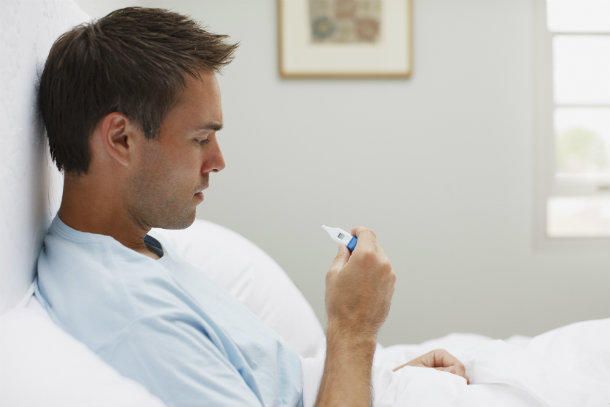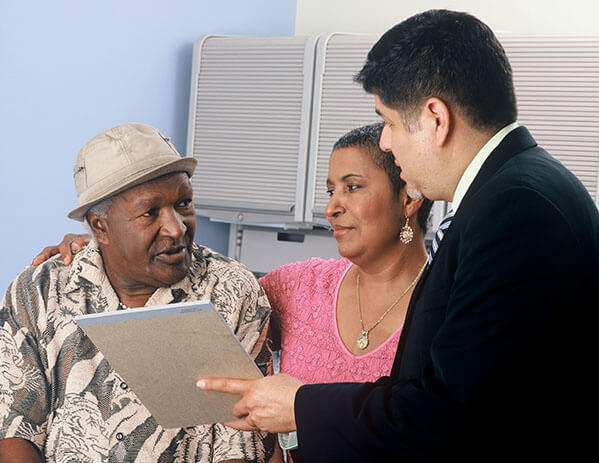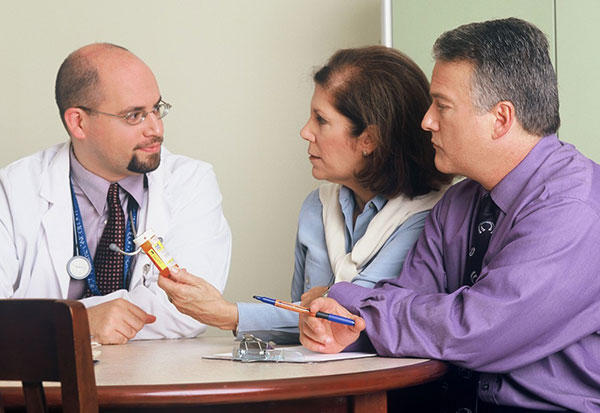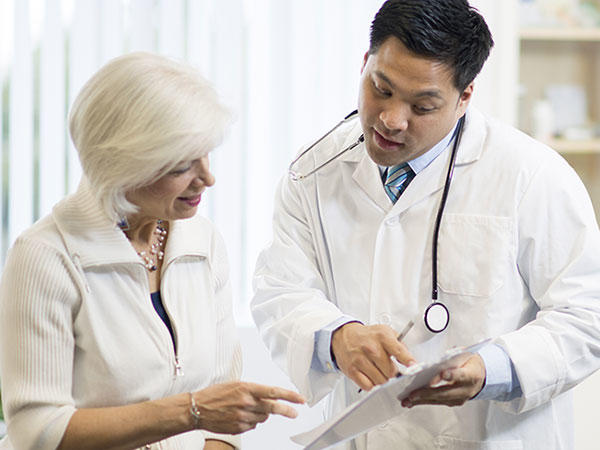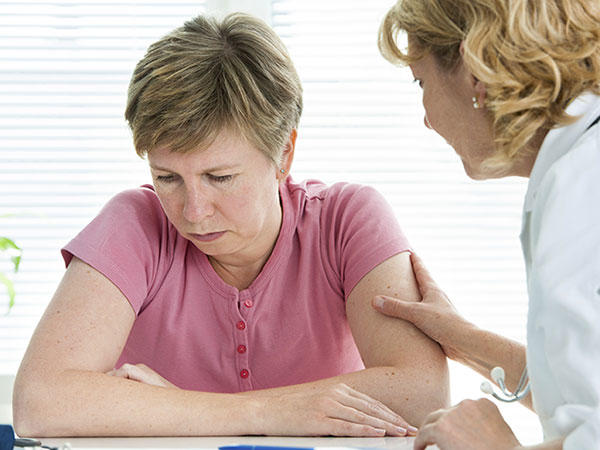Flu Symptoms Caused by Cancer Treatments
Flu-like symptoms (also called flu-like syndrome) are a group of related side effects that may be caused by cancer treatments, such as chemotherapy and immunotherapy. If flu-like symptoms are severe, you may be advised to seek immediate medical attention. Some people who receive higher doses of treatment, or more than one treatment at a time, may have more severe flu-like symptoms.
Talk with your doctor so you know what flu-like symptoms to expect, based on your cancer treatment.
- Some types of chemotherapy can cause flu-like symptoms within a few hours after treatment. These symptoms generally last for 2 to 3 days.
- Some types of immunotherapy increase your body’s natural immune response, which can cause mild to severe flu-like symptoms. These symptoms often peak shortly after treatment and become less severe over time. Immunotherapy treatments such as CAR T-cell therapy and some monoclonal antibodies may cause cytokine release syndrome (CRS), a condition that can lead to severe flu-like symptoms as well as a rash, rapid heartbeat, low blood pressure, and trouble breathing. Doctors may refer to severe cases of CRS as a cytokine storm.
Ask Your Health Care Team about Flu-Like Symptoms
- What signs and symptoms might I have, based on the type of cancer treatment I am receiving?
- Which flu-like symptoms should I call you about? Which can be managed at home?
Make note of flu-like symptoms you should call your health care team about:
- appetite loss
- body aches (muscle or joint aches)
- chills
- diarrhea
- fatigue (lack of energy)
- fever of 100.5°F (38°C) or higher
- headache
- nausea and/or vomiting
Ways to manage flu-like symptoms during cancer treatment
Keep in mind that when these symptoms occur in people receiving immunotherapy they may be diagnosed, managed, and treated differently than when they are caused by other cancer treatments.
When your doctor recommends self care, here are steps you can take to feel better:
- Appetite loss: Drink water and other fluids advised by your health care team to stay hydrated. Drinking fluids is especially important if you are not eating much. It may be easier to eat small meals, and to eat more often. Choose foods that are high in calories and protein to give your body strength. Learn more about how to manage appetite loss.
- Chills: Chills are your body’s way of increasing your temperature. Ask your health care team what steps you should take if you have chills. Your health care team may advise you not to pile on blankets, since this can cause your temperature to rise even higher. When chills are severe, doctors may prescribe medicine.
- Diarrhea: Drink plenty of water to replace fluids you lose when you have diarrhea. Water and other fluids will help prevent dehydration, which may cause you to feel weak, dizzy, and disoriented. Your doctor may prescribe an over-the-counter diarrhea medicine. If you are receiving immunotherapy, diagnostic tests may be advised to rule out gastritis, a more serious medical condition. Learn more about how to manage diarrhea.
- Fatigue: Balance periods of rest with periods of activity. Choose the time of the day when you have the most energy to do an activity or to exercise. Regular exercise can help you to keep up your strength and stamina during treatment. Learn more about how to manage fatigue.
- Fever: Your body loses fluids when you have a fever, so it’s important to drink water to prevent dehydration. You may want to rest and put an ice pack on your forehead. Sometimes taking medicine to lower a fever can mask a more serious problem. For this reason, you may be advised to call your doctor before taking medicine to lower a fever.
- Headache and/or body aches: Use ice packs or place a cold washcloth on your forehead to get relief. If advised by your doctor, take over-the-counter pain relievers such as acetaminophen, ibuprofen, or aspirin.
- Nausea and vomiting: Try to take small sips of water, fruit juices, ginger ale, tea, and/or sports drinks, if recommended, throughout the day. Learn more about how to manage nausea and vomiting.
If these symptoms last or become severe, your doctor may advise diagnostic tests to identify what is causing these problems and determine how best to treat them.
Talking with your health care team about flu-like symptoms
Prepare for your visit by making a list of questions to ask. Consider adding these questions to your list:
- What flu-like symptoms are common for the type of treatment I’m receiving?
- What problems should I call you about? Are there any symptoms that need urgent medical care?
- When might these symptoms start? How long might they last?
- Should I keep track of any symptoms?
- How much fluid should I drink every day? What types of fluids are best for me to drink?
- Are there medicines I should take to feel better? Are there medicines I should avoid or call you before taking?
- How often should I check my temperature?

